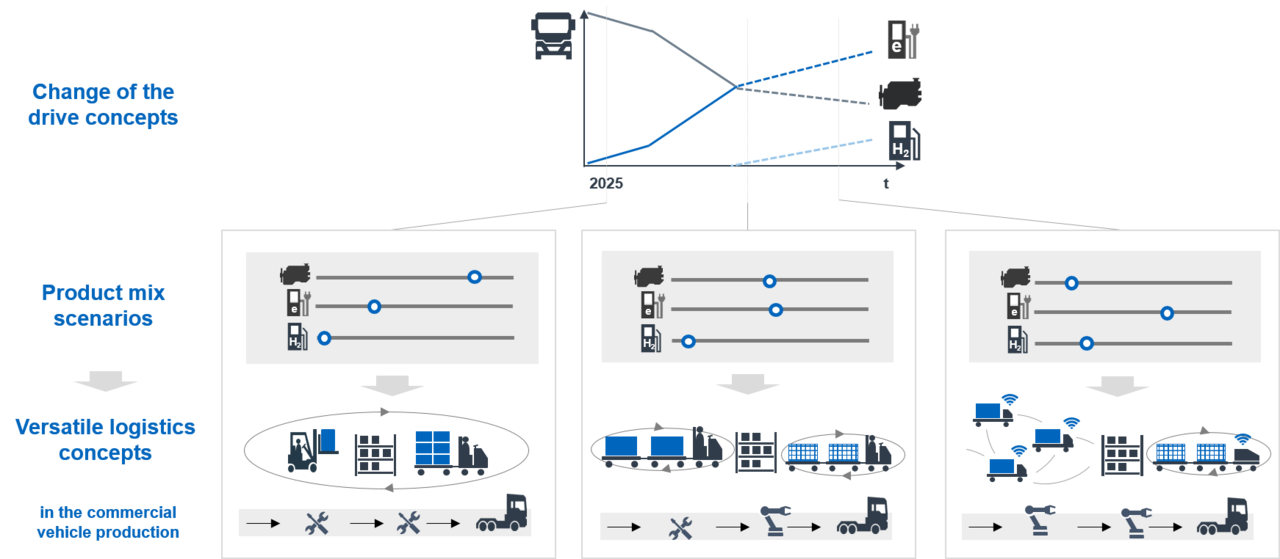Transformable logistics concepts for the integration of alternative drive systems in the industry of commercial vehicles
The commercial vehicle industry is in a state of transformation. Various simultaneous trends have the potential to fundamentally change the entire industry. In addition to digitalisation and automation, these also include the shift towards alternative drives. The electrification of vehicles is currently causing profound changes in the core segment of the transport industry, the powertrain. These are permeating the most diverse areas of this industry and thus have the potential to influence one of Germany's largest industries to an unimagined extent. Challenges result both from external influences from the market and legislation as well as from the technical changes at component and technology level.
This situation makes it necessary to identify upcoming demands on the structures of production and logistics at an early stage. It is no longer sufficient to meet emerging challenges purely reactively via short-term goals; early knowledge of future requirements and framework conditions in the area of production and logistics is indispensable. Through proactive and long-term planning, preparatory measures can be properly controlled, resources can be focused and companies can be put on a sustainable path with the definition of coherent production and logistics concepts.
The objective of this research project is the development, evaluation and selection of flexible, adaptable logistics concepts for the integration of alternative drives in commercial vehicle production.
The project is divided into six work packages.
- The first step is to analyse the initial situation with regard to products and processes in commercial vehicles in order to identify current logistics concepts and possible weaknesses.
- In the second work package, possible requirements for future logistics concepts will be identified in various scenarios. The product including drive concepts as well as the presented production concepts resulting from the integration of alternative drives in production will be considered. New requirements can arise both from new types of components/modules and their properties (product-side requirements) and from the integration of new variants into existing production and logistics processes (process-side requirements).
- On the basis of the requirements determined, inbound and in-house logistics concepts are to be developed for the components/modules that are influenced by the integration of alternative drive concepts into the product.
- Subsequently, logistics concepts for new components/modules are to be evaluated and selected with the help of a methodology to be developed. The evaluation is to be carried out on the basis of a multi-criteria model for different scenarios and taking into account various criteria (costs, flexibility/convertibility, area, etc.).
- Based on an exemplary application using product mix scenarios at MAN Truck & Bus SE, the assessment model will be evaluated, implementation scenarios developed and recommendations for action derived.
- The sixth work package runs parallel to all the others and includes the documentation and publication of the project's progress.
The research project is conducted as part of the cooperation between MAN Truck & Bus SE and the Technical University of Munich (MAN.TUM).
